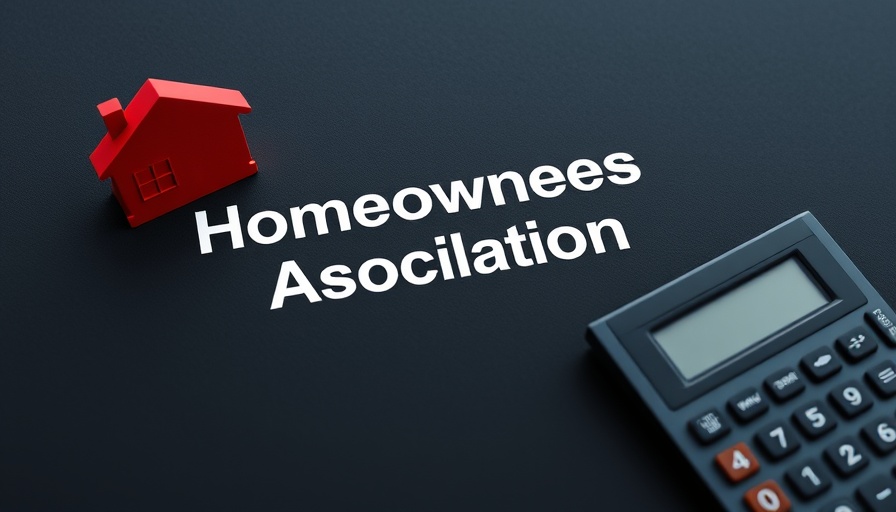
Understanding HOA Liens: What Homeowners Need to Know
Homeowners associations (HOAs) have become increasingly common in the U.S., with nearly 33.6% of homeowners living under their governance as of 2024. These entities are designed to maintain property values and offer communal amenities, but they also come with specific rules and the power to impose liens on properties for non-compliance or unpaid dues. Knowing the implications of these liens is crucial for any homeowner.
What Is an HOA Lien?
An HOA lien is essentially a legal claim that the association places on a homeowner's property when the homeowner fails to pay necessary fees or violates community standards. Common scenarios leading to this situation include falling behind on monthly dues, special assessments, or accruing fines for rule violations. HOAs derive their authority to impose liens from the governing documents, such as the Covenants, Conditions, and Restrictions (CC&Rs), that homeowners agree to upon purchasing their property.
The Legal Ground: Yes, HOAs Can File Liens
Yes, an HOA can legally file a lien on your home, often without needing your explicit permission. This action is typically based on the terms outlined in the CC&Rs. Depending on state laws, the HOA might automatically impose a lien the moment a payment is missed, while in other states, they must first file the lien with local authorities. Understanding local laws is vital, as they differ significantly from state to state.
After the Lien: Consequences for Homeowners
Once an HOA lien is filed, it becomes a part of the public record. This development doesn’t mark an end; in fact, the amount owed can increase due to late fees, legal costs, and interest accumulation. Homeowners may also face challenges if they try to refinance or sell their property, as the HOA might notify mortgage lenders of the outstanding debt. Usually, HOAs are required to give written notice prior to or shortly after filing a lien, but homeowners must act promptly to resolve the outstanding balances.
Strategies for Homeowners to Protect Themselves
Understanding your HOA's rules is the first step toward protecting your assets. Always review the CC&Rs and stay current on payments. If you're facing financial challenges, communicate with your HOA to seek payment plans or assistance. Additionally, if disputes arise concerning the lien, consider consulting with a real estate attorney who can help navigate the complexities of HOA governance and protect your rights.
Future Predictions for HOAs and Liens
As the real estate market evolves, so too will the practices of HOAs. With housing developments on the rise and more homeowners living under association rules, it's likely that the frequency and nature of liens will transform. Homeowners should anticipate changes in legislation affecting HOAs, which may either tighten or loosen the grip associations have on unpaid debts. Some experts foresee a push toward greater transparency and fairness in HOA operations, which could reshape the landscape of property protection.
Raising Awareness About Homeowners Associations
The complexity of HOA bylaws can often leave homeowners feeling vulnerable. Many mistakenly believe that once they’ve bought a property, they’re free from obligations. By raising awareness about the power HOAs wield and educating homeowners about their rights, the community can better equip itself to handle disputes and avoid debilitating financial consequences. Advocating for clearer communication from local associations can further protect homeowner interests.
Conclusion
Understanding the intricacies of HOA liens is essential for safeguarding your home and investments. It's vital to stay informed about your HOA's rules, communicate effectively, and seek legal advice when needed. Don't let unpaid dues turn into a lien that compromises your financial future! To stay on top of real estate trends and your rights as a homeowner, keep researching and don’t hesitate to seek expertise.
 Add Row
Add Row  Add
Add 



Write A Comment